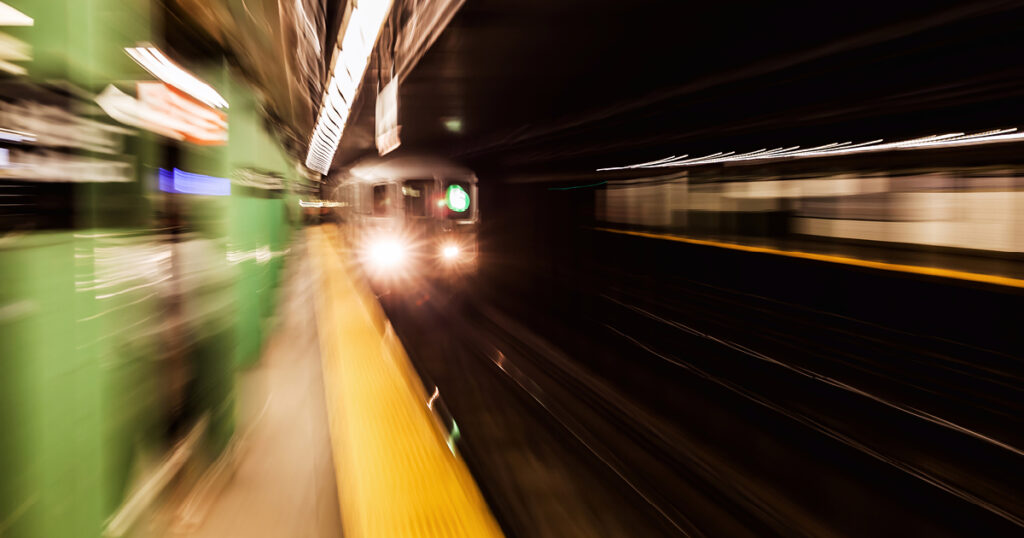
The new suit follows a report by the Dept. of Justice that said the city’s paratransit system had created systemic barriers to transit access for people with disabilities.
New York, NY (April 27, 2023) – A group of Access-A-Ride participants, on behalf of the more than 170,000 people registered for the service within the five boroughs of New York City, today filed suit against the Metropolitan Transit Authority (MTA) for discrimination over practices that do not provide them with equitable access to transit. Many of these users are unable to use subways and buses along a fixed-route with any consistency due to their disabilities.
Federal and local disability rights law mandates that paratransit services for people with disabilities, like Access-A-Ride, be comparable to transportation services provided to nondisabled people. This class action lawsuit states that the MTA has discriminated against disabled riders relying on Access-A-Ride by not providing them with comparable access to transit because riders are required to schedule all their trips in advance with little room for change or spontaneity. They are also forced to endure long and required wait times in scheduling trips and before a ride can be considered late. Finally, Access-A-Ride users often ride around the city for hours in the opposite direction of their destinations due to non-geographic routing.
The individual plaintiffs named in this suit have faced roadblocks accessing service. This includes an Inwood resident who is unable to use subway or bus service because of her disability and relies on Access-A-Bus to get to doctor appointments and work. It also includes an individual in Brooklyn who prefers to use the subway, but a neurological disorder that causes mobility impairment prevents him from doing so, especially when it is crowded or during adverse weather conditions. It also includes another Brooklyn resident who started using Access-A-Ride 15 years ago because of a knee surgery.
All of these individuals, and more, are met with barriers to accessible and equitable transit, including long wait times to book rides and unpredictable routes that cause lengthy trips instead of providing more direct access. The individuals have reported wait times exceeding two hours and difficulty in scheduling a ride to arrive on time for appointments or work shifts. These paratransit riders and others have said that they are sometimes forced to forgo travel or activities to avoid the hassle of using the system.
“I give Access-A-Ride a 6:30 pickup time to make it to work for 9 AM, just to make up for the time I know I’ll spend either waiting for my ride or going to the Bronx when I live in Manhattan, only a 30-minute drive away from my job—also in Manhattan,” said Luz Paulino-Santos, an Access-A-Ride user since 2017, “Then, a lot of the time, I still get to work late.”
“Access-A-Ride is especially important for people with intellectual and developmental disabilities,” said Matt Sturiale, of the New York Integrated Network (NYIN). “While the MTA has committed to adding elevators to increase accessibility to the subway, there are still members of the disability community who will not be able to use public transportation with this singular solution. For these individuals and their caregivers, a reliable Access-A-Ride system that is punctual, efficient, and affords them the opportunity to live their lives to the fullest is essential. Access-A-Ride needs to offer services in a manner that eliminates unnecessary driving around the city, add extra scheduling and coordination duties for their support systems, and disrupts each person’s abilities to go to attend school, work, medical appointments, and other routines.”
A recent Department of Justice (DOJ) report found that Access-A-Ride has failed to provide comparable service to that provided to nondisabled users of the fixed route system, a discriminatory action towards disabled people who rely on these transit services. The MTA currently requires customers to reserve trips by 5 p.m. the day before, agree to pickup times that can be an hour earlier or later than requested and to be subjected to unpredictable route lengths that take them all around the city instead of in the geographic direction of their destinations.
New York Integrated Network (“NYIN”), a nonprofit coalition of more than a dozen agencies providing a variety of services across New York City and the areas surrounding it, is also a plaintiff in the suit Many of the disabled people who this organization serves have intellectual and developmental disabilities that make them unable to use even stair-free fixed-route transit, making them especially reliant on Access-A-Ride.
The plaintiffs are being represented by Britney Wilson, Associate Professor of Law and the Director of the Civil Rights and Disability Justice Clinic at New York Law School Legal Services, Inc. and Maia Goodell, a partner at Vladeck, Raskin & Clark, P.C.

